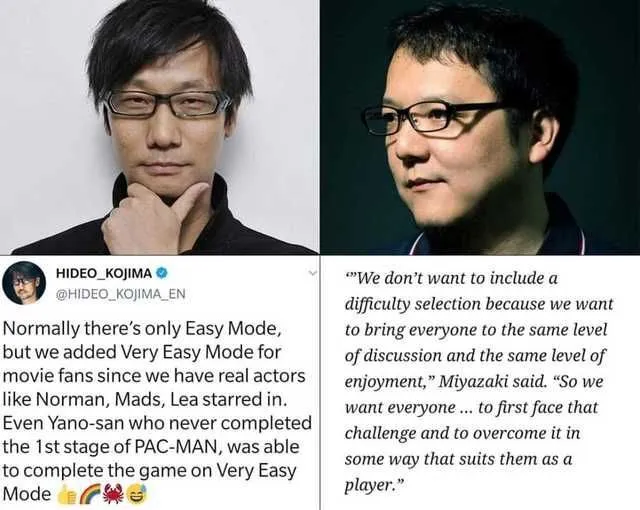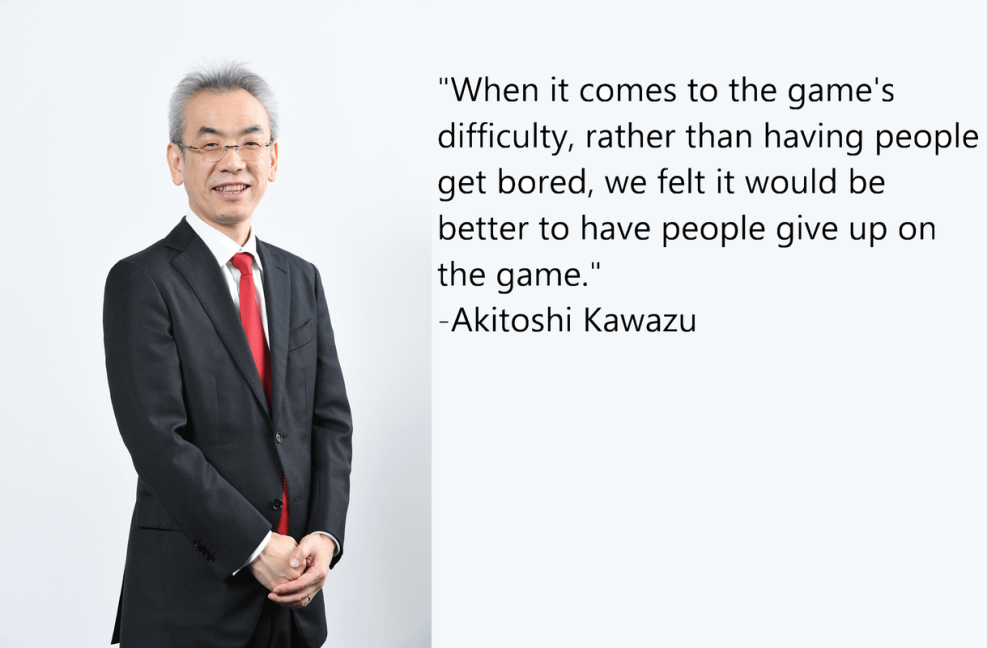Chuck Norris
Augur
On the first playthrough, if a game asks me what difficulty setting I want to choose, it's automatically a negative for me. For a couple of reasons:
1. Difficulty settings make the game predictable
Most difficulty settings boil down to easy, medium and hard. If you choose whichever one, you already have a strong idea about how the game is going to play out. In some cases, you EXACLY know how the game is going to play out, because the difficulty curve in the games of the same genre and same generation are exactly the same. Just pick any FPS from 2007-2013 era. This is how the game is going to play out depending on the difficulty you have chosen:
Easy: you have to actively try to get killed.
Medium: just don't walk into enemy bullets and you're fine
Hard: you have to shoot and then take cover
A good game makes thing easier or harder based on narrative/pacing reasons, not a metric the player chooses at the beginning.
2. The player doesn't have enough information to choose a difficulty setting
If it's your first playthrough, choosing the difficulty setting that is right for you is a pain in the ass, because you don't know how hard/easy the game is on a basic level. You just have to take a wild guess and that choice can ruin your game and make the game easier or harder than you intended.
3. Difficulty settings result in lazy balancing
On easy, the enemy dies in 1 hit. On hard, it dies on 5 hits. Wow, how creative.
This is a cop-out, because balancing in itself is an art form. By putting difficulty settings in the game, the developers make things easier for themselves, because if the game is unbalanced on hard, you chose that. If it's basically an interactive movie on easy, again, you chose that.
4. Difficulty settings don't allow players to have a shared experience
They ruin the joy of defeating a really hard boss that you might get stuck on for hours or enjoying the moments of absolute power after you have done the hard work to become strong (think Gothic games), the moments that you are eager to share with other players. With difficulty settings, moments like that are ruined and cheapened and do not become memorable enough to be worth sharing
So what are the alternatives?
1. Adding secret easy mode withing the confines of the game-play itself: like the sorcerer class in Dark Souls or certain weapons/aspects in Hades
2. Dividing the game-world into different difficulty settings, kinda like what Gothic games did. You are technically free to go wherever you want, but certain areas are hard to get through if you are still weak (this one works for open-world and semi open-world games
3. Making the main campaign easy and managable, but adding side content that is hard (kinda like GTA games or Mario games)
4. Designing the game in a way that rewards the player for showing skill, but doesn't punish the player for lack thereof (like the combo grading system in DMC and assassination grading system in Hitman games)
5. Adding dynamic difficulty (like Resident Evil 4)
Anyways, you can think of a lot of alternatives. The point is that difficulty settings suck and trivialize any challenge the game might provide. They are the result of lack of confidence and trust by the developers in their own ability to design a neat experience that deserve the player's attention and mastery.
1. Difficulty settings make the game predictable
Most difficulty settings boil down to easy, medium and hard. If you choose whichever one, you already have a strong idea about how the game is going to play out. In some cases, you EXACLY know how the game is going to play out, because the difficulty curve in the games of the same genre and same generation are exactly the same. Just pick any FPS from 2007-2013 era. This is how the game is going to play out depending on the difficulty you have chosen:
Easy: you have to actively try to get killed.
Medium: just don't walk into enemy bullets and you're fine
Hard: you have to shoot and then take cover
A good game makes thing easier or harder based on narrative/pacing reasons, not a metric the player chooses at the beginning.
2. The player doesn't have enough information to choose a difficulty setting
If it's your first playthrough, choosing the difficulty setting that is right for you is a pain in the ass, because you don't know how hard/easy the game is on a basic level. You just have to take a wild guess and that choice can ruin your game and make the game easier or harder than you intended.
3. Difficulty settings result in lazy balancing
On easy, the enemy dies in 1 hit. On hard, it dies on 5 hits. Wow, how creative.
This is a cop-out, because balancing in itself is an art form. By putting difficulty settings in the game, the developers make things easier for themselves, because if the game is unbalanced on hard, you chose that. If it's basically an interactive movie on easy, again, you chose that.
4. Difficulty settings don't allow players to have a shared experience
They ruin the joy of defeating a really hard boss that you might get stuck on for hours or enjoying the moments of absolute power after you have done the hard work to become strong (think Gothic games), the moments that you are eager to share with other players. With difficulty settings, moments like that are ruined and cheapened and do not become memorable enough to be worth sharing
So what are the alternatives?
1. Adding secret easy mode withing the confines of the game-play itself: like the sorcerer class in Dark Souls or certain weapons/aspects in Hades
2. Dividing the game-world into different difficulty settings, kinda like what Gothic games did. You are technically free to go wherever you want, but certain areas are hard to get through if you are still weak (this one works for open-world and semi open-world games
3. Making the main campaign easy and managable, but adding side content that is hard (kinda like GTA games or Mario games)
4. Designing the game in a way that rewards the player for showing skill, but doesn't punish the player for lack thereof (like the combo grading system in DMC and assassination grading system in Hitman games)
5. Adding dynamic difficulty (like Resident Evil 4)
Anyways, you can think of a lot of alternatives. The point is that difficulty settings suck and trivialize any challenge the game might provide. They are the result of lack of confidence and trust by the developers in their own ability to design a neat experience that deserve the player's attention and mastery.














